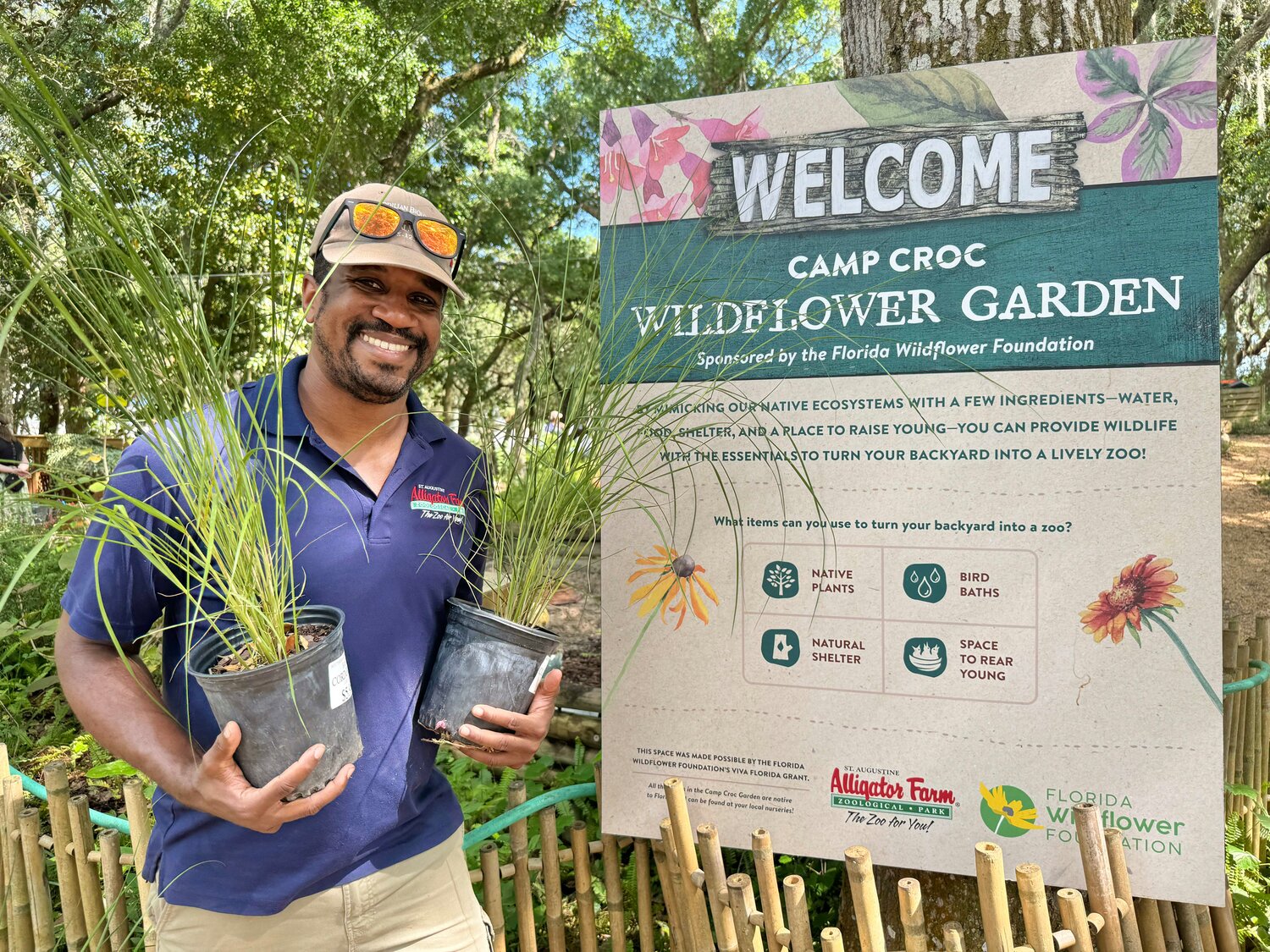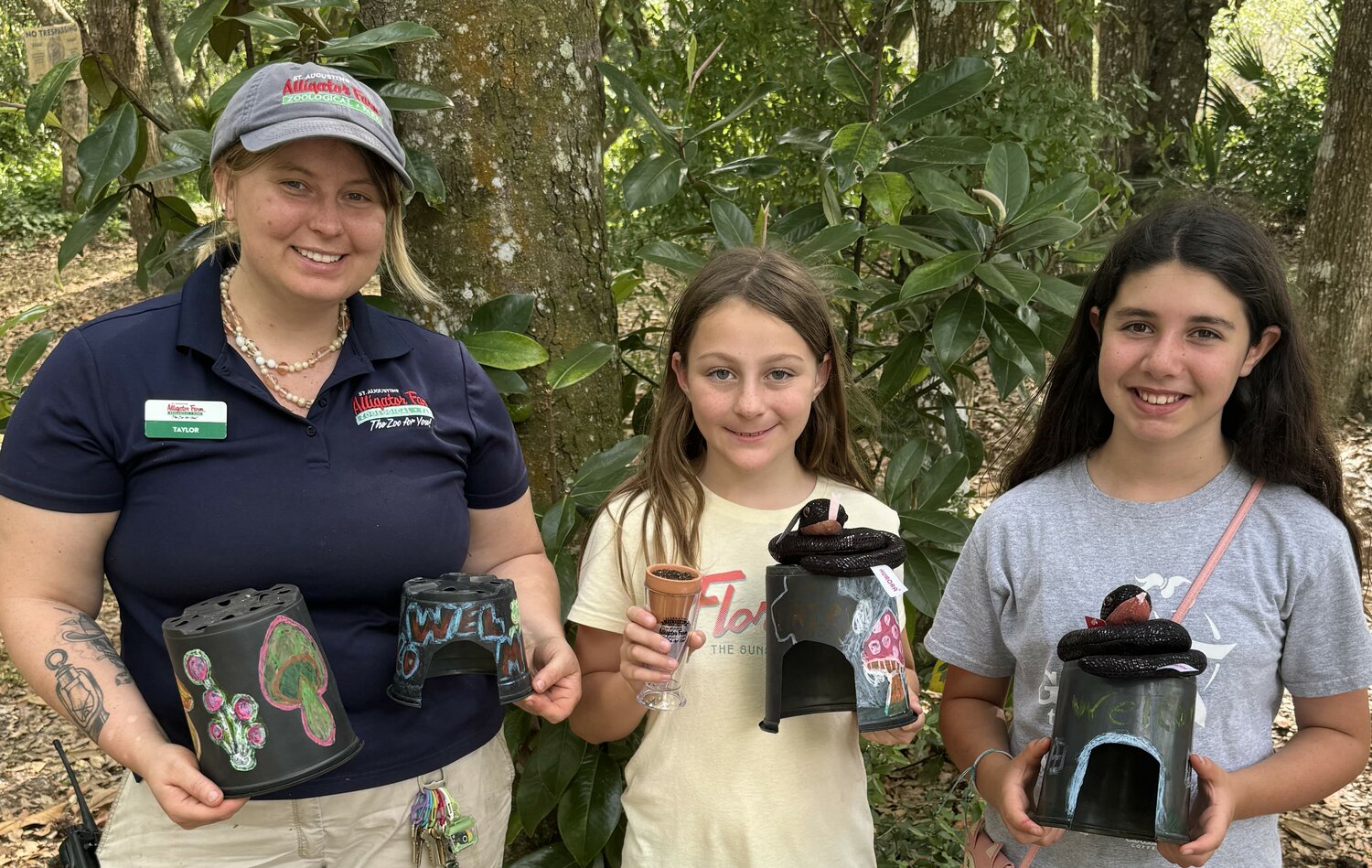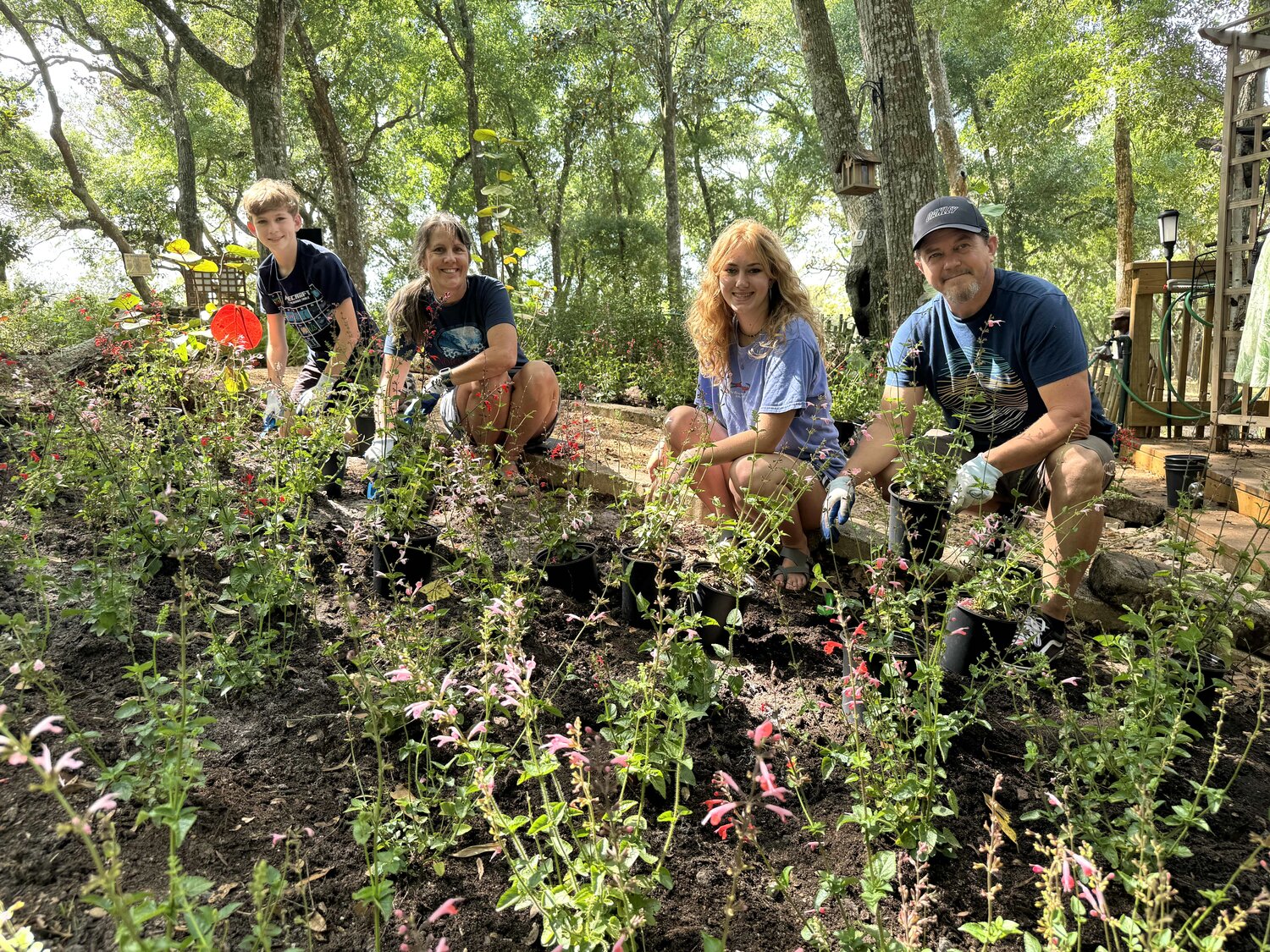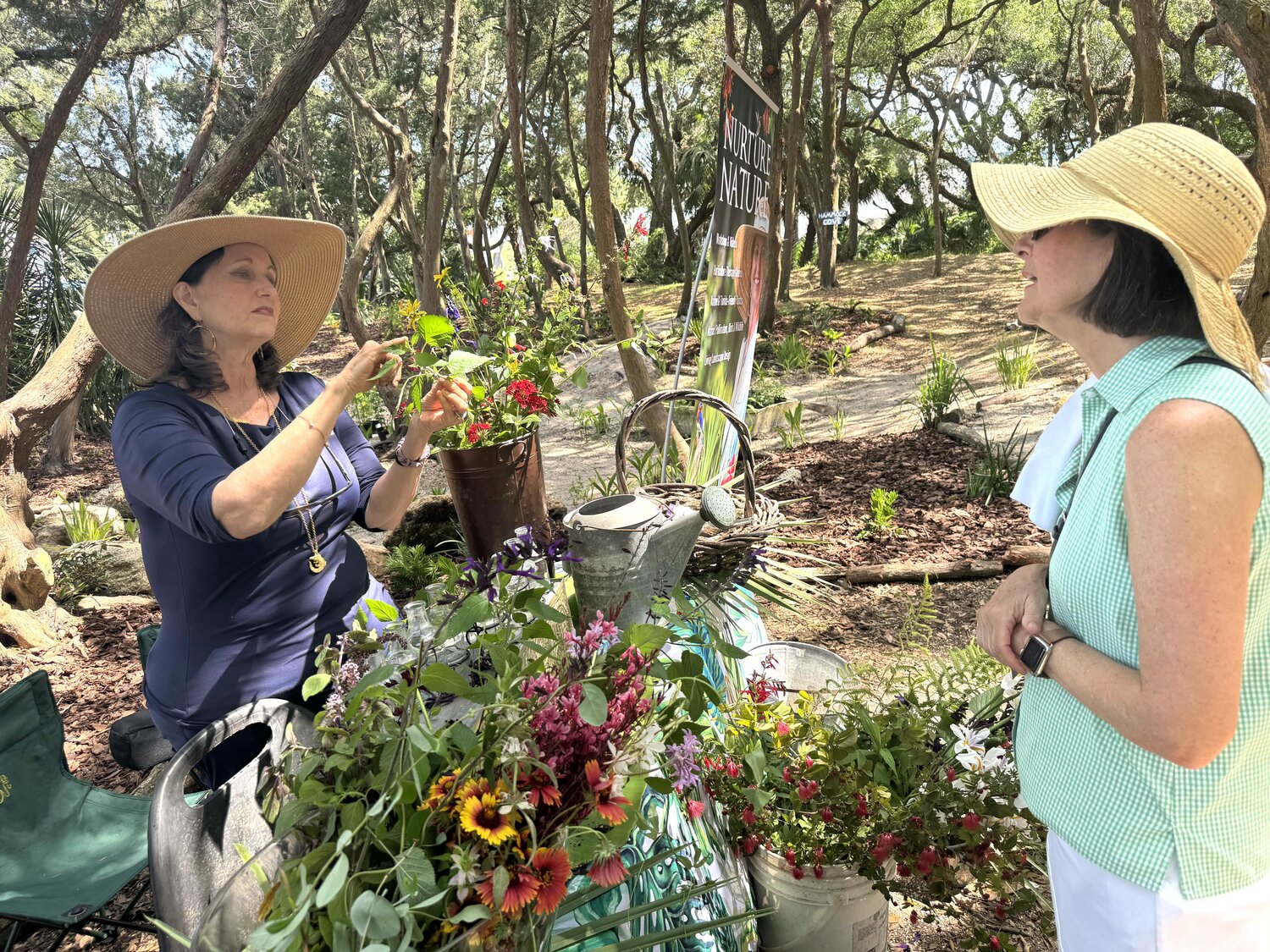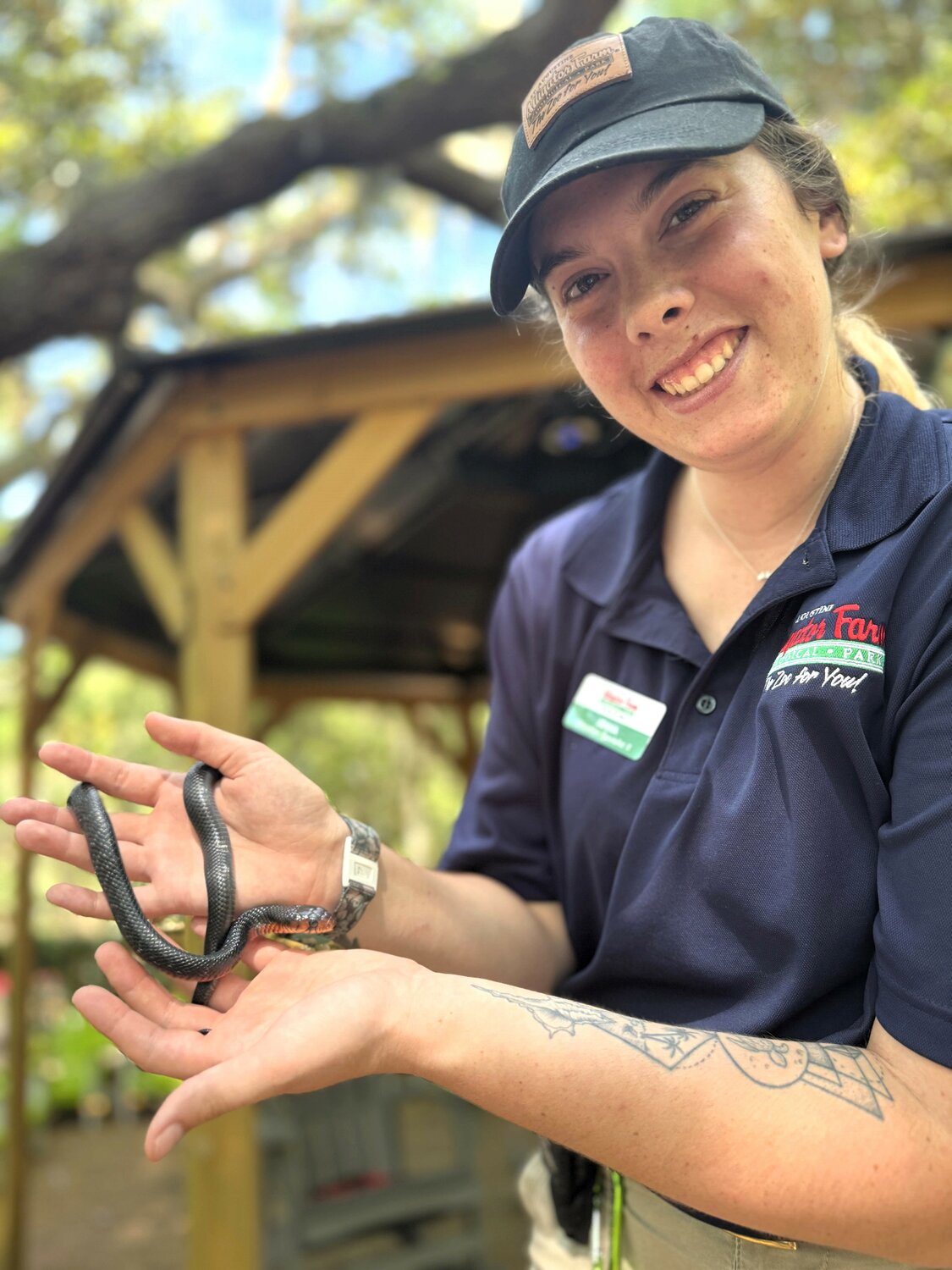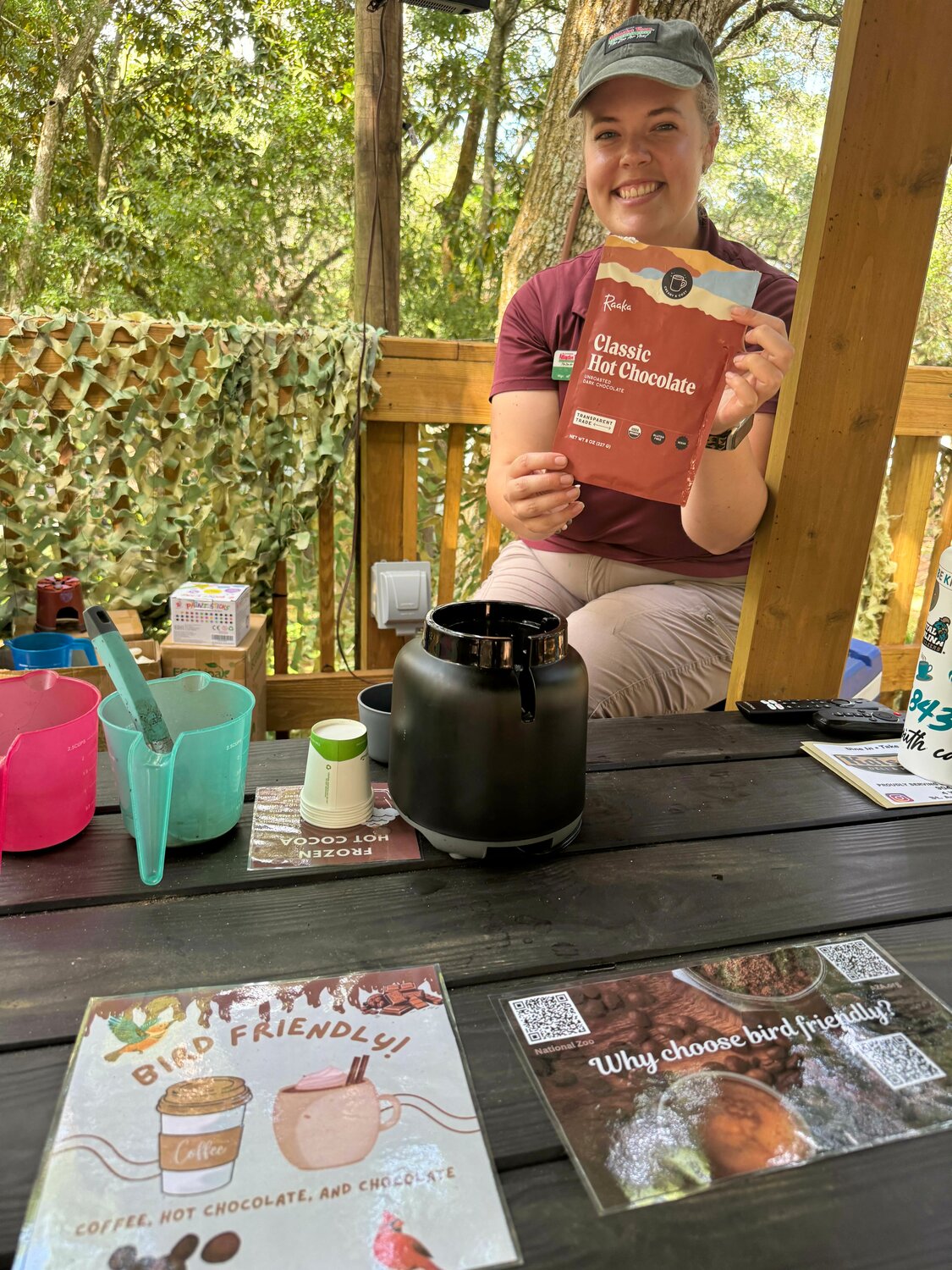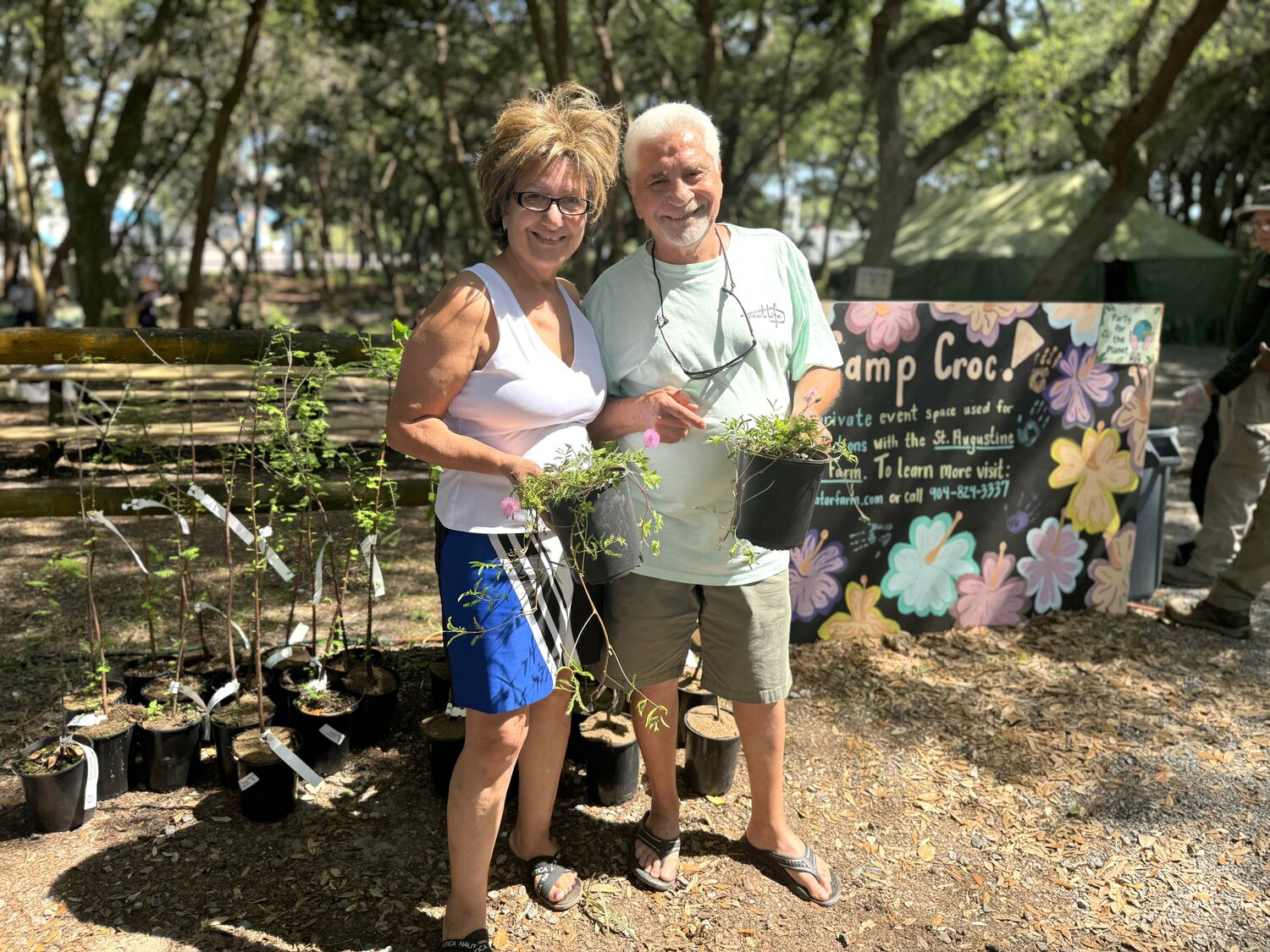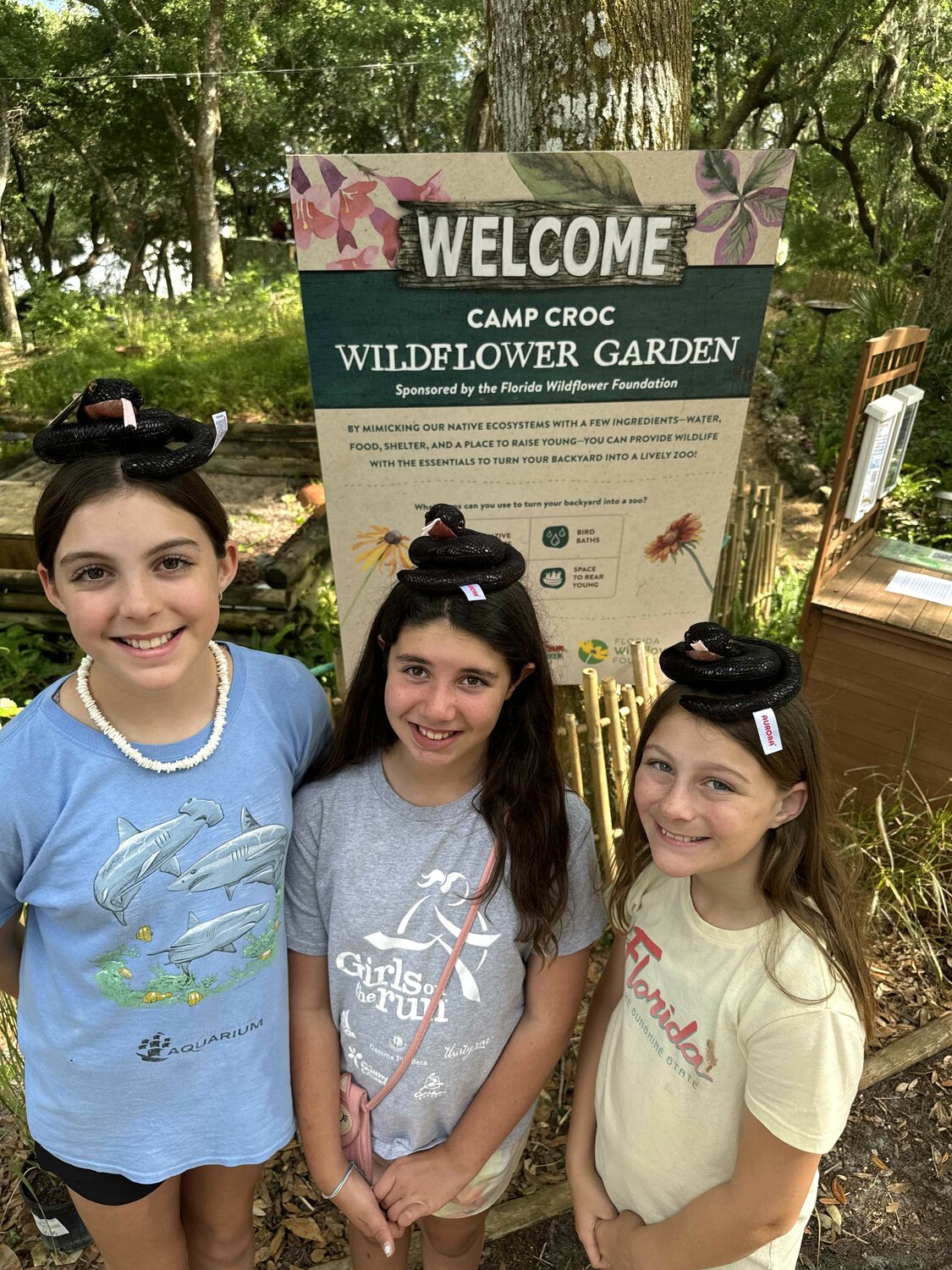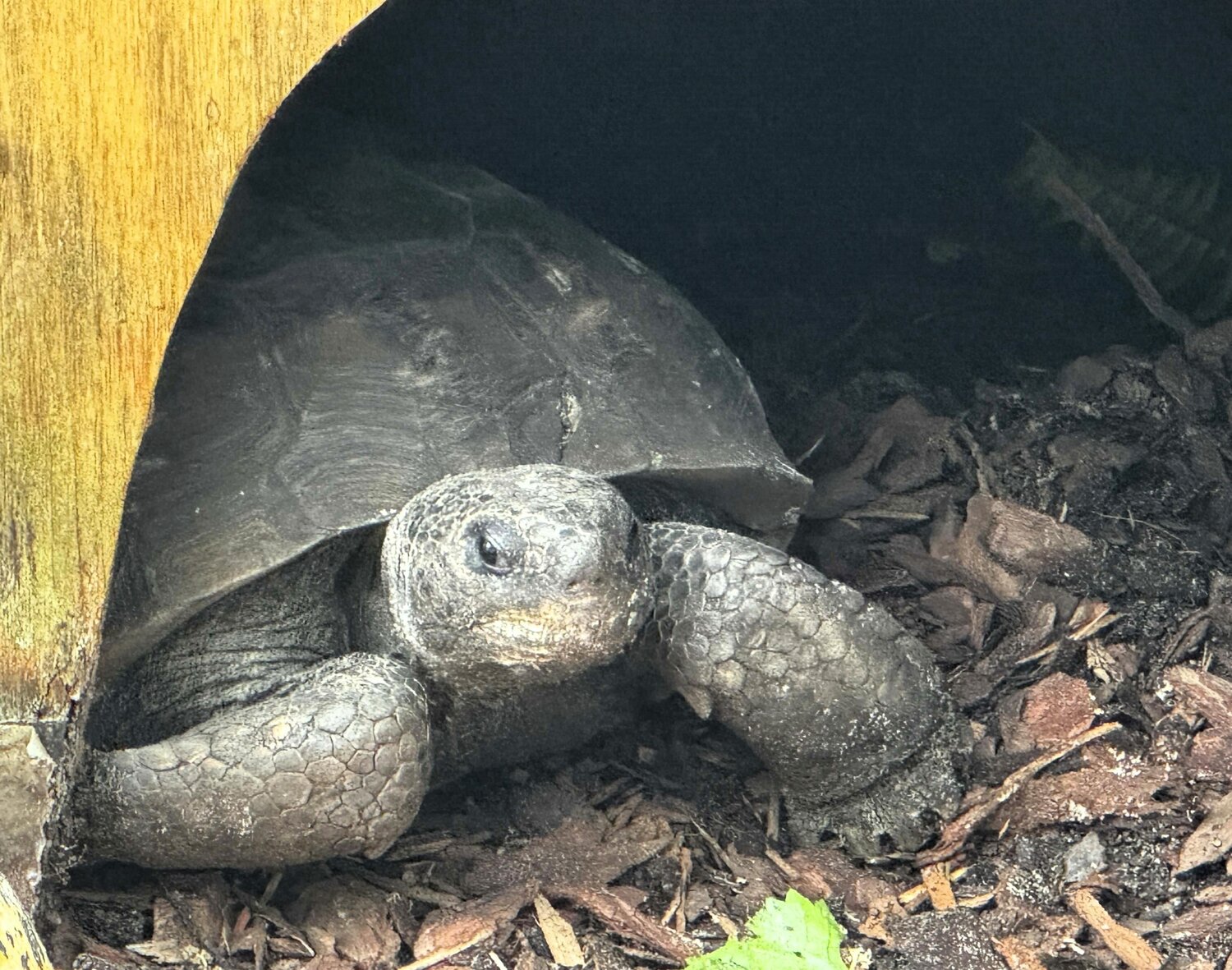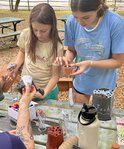Alligator Farm marks Earth Day with ‘Party for the Planet’
Residents install hundreds of new plants to benefit native wildlife
More than 300 people showed up for “Party for the Planet” at the St. Augustine Alligator Farm Zoological Park on Saturday, April 20. Instead of marveling over impressive reptiles, the partygoers meandered through Camp Croc, a somewhat-unknown area of the farm, as part of a global celebration held just before Earth Day.
Other than the large oak trees providing the perfect canopy of shade and a small wildflower garden, there had never been much to see in Camp Croc, an area used for field trips, camps and community events. But “Party for the Planet” provided an opportunity to enhance the landscape by adding more than 1,000 plants representing more than 20 species.
With an “if you build it, they will come” philosophy, the Alligator Farm used the event to enlist help from the community. People showed up ready to get their hands dirty and install native plants. In return for their efforts, attendees got to take home some of these beneficial plant species.
“Today was a big success,” said Trevor Mia, the Alligator Farm’s curator of education. “With help from the public, we got all of the new, Florida-friendly and native plants in the ground. While exotic plants thrive in Florida’s climate, they do not provide the necessary resources for native animals to survive. We wanted to add mostly native species to create hotspots for pollinators, such as butterflies and birds.”
The event included fun, hands-on activity stations for all age levels. Kids decorated “toad abodes,” which are spaces for amphibians to seek shelter. While they were busy adding artwork to their houses, Alligator Farm educator Taylor Evans explained how the houses would provide a safe space for native species like the Southern toad and oak toad, and maybe even the Southern leopard frog after a big rain.
Other giveaways included nature journals, pencils containing seeds that can be “planted” when they get too short for writing, native plant seeds with terra cotta starter pots, stuffed animal indigo snakes and even bird-friendly frozen hot chocolate.
Mia said he met one family from Pennsylvania, but most were local.
“A lot of people came specifically for this event and were eager to learn more about plants and our native species and get to take some home to try in their own yards,” he said.
The Freeney family drove down from Fernandina Beach and helped install several tropical sage plants, a favorite of butterflies, hummingbirds and other pollinators.
“We recently moved here from Hawaii, so we are just starting to learn all about Florida’s native plants,” said Karri Freeney.
In addition to the Alligator Farm stations, there were booths highlighting partnerships that help the farm continue the education component of its conservation mission.
Kelly Tesiero, founder of Nurture Nature and a landscape designer, had a table adorned with wildflowers, enticing guests to stop by and learn how to propagate plants and transform a basic backyard into a flower-filled space that attracts birds and butterflies. She showed people how to plant swamp twinflower, a blooming and shade-loving groundcover that will perform well under the oaks.
Leading up to Saturday’s event, Tesiero had been tasked with completely reimagining two acres within Camp Croc. She creatively repurposed two old boats and a large crocodile tail prop from a former display at the Alligator Farm. She incorporated flowing pathways and selected plants that show how native species can look beautiful, bring in more wildlife and require less care than traditional ornamentals. More than 700 plants were added to the area as part of Tesiero’s vision for guests to explore nature.
“Camp Croc is even more magical now, and it will be a great place for children and adults to connect to nature and learn about easy backyard conservation measures that have a positive impact on the environment,” Tesiero said.
St. Johns County Parks and Recreation Department also had knowledgeable representatives at “Party for the Planet.”
Supervisor of Outdoor Recreation Kelly Ussia and naturalist Will Pate conducted gardening demonstrations and assisted people with adding vegetable plants into raised planter boxes. They explained how to use the county’s website to register for kayak trips, beach walks, nature journaling classes and other outdoor adventures, as well as a special workshop on May 18 with Nurture Nature on how to propagate native plants to boost biodiversity.
Of course, no Alligator Farm event would be complete without live animals! Everyone made time to see Bowser, a female gopher tortoise that is one of the farm’s ambassador animals, educating people about the importance of protecting this keystone species whose burrows are utilized by more than 300 different animals.
Eastern indigo snakes were also popular with Saturday’s visitors. They’ve been listed as “threatened” since 1978 under the Endangered Species Act, so it was a rare opportunity to see one up close and learn how the Alligator Farm is helping them recover.
What began in the late 1800s as a small exhibition of Florida reptiles, the farm has grown into a thriving zoological park with a focus on conservation and education. There’s no need to worry if you missed “Party for the Planet” because the Alligator Farm will continue to hold events that make it fun to learn about native species and why it’s important to protect and restore their natural habitats.
The following partners supported and contributed to “Party for the Planet”: Florida Wildflower Foundation, St. Johns County Parks and Recreation Department, Nurture Nature founder Kelly Tesiero, Southern Horticulture and Kaiser’s Deli. Funding for Saturday’s event was provided by the Association of Zoos and Aquariums and Disney’s Conservation Fund.


